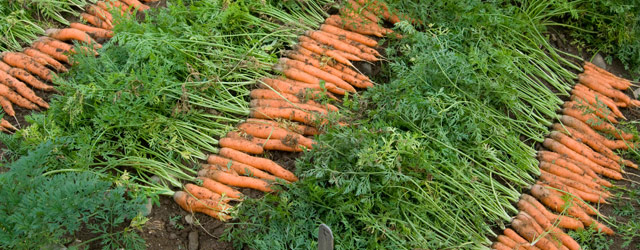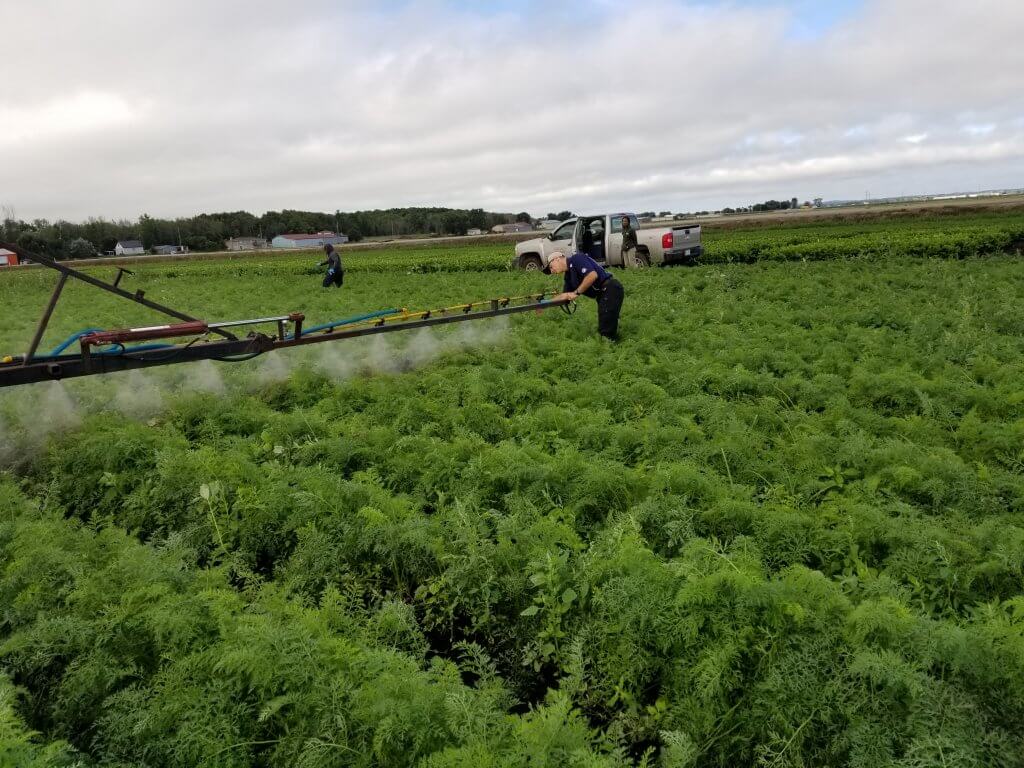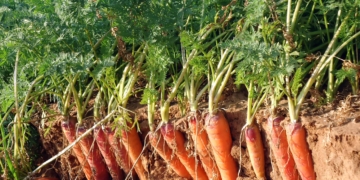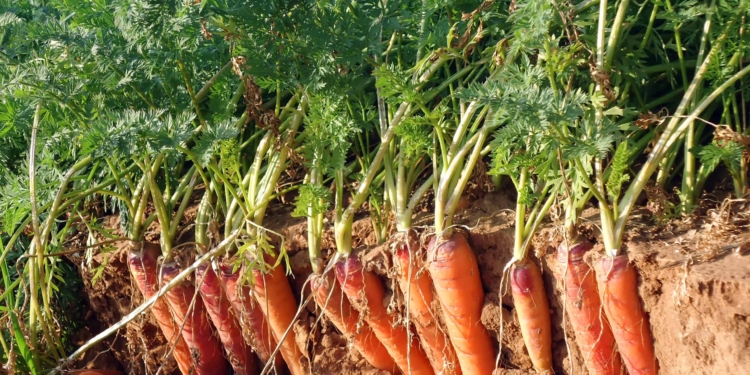In 2020-2021, Delphy Northwest Netherlands successfully conducted several studies in the cultivation of B-carrots. The focus of the 2020 studies was on fertilization, herbicides and innovation. These studies will continue in 2021 to lift carrot cultivation to a higher quality level.
Fertilization
2020 was a year of extremes where optimal fertilization was important to achieve good yield and quality. Delphy has set up a test on the basis of five nitrogen doses from 0 to 200 pure. The aim of this research is to find the optimal fertilizer application resulting in good yield and quality. The results of the yield determinations show that over-fertilization with calcium ammonium nitrate does not lead to a direct yield increase.

The net yield for all five doses of 0 kg to 200 kg / ha nitrogen is a total of around 80 tons. What is striking is that there is a reliable effect in tare on the basis of the nitrogen application. Where nitrogen fertilization was not carried out (object 0 kg / ha), both the numbers and kilograms of carrots that are twisted and curved are considerably higher.
Herbicide
After the disappearance of a number of herbicides in the cultivation of carrots, the control of black nightshade is threatened. Field plots show that with the obvious weed control schemes, black nightshade control is not enough. This raises questions for both growers and advisers. In this study, it was determined whether an LDS scheme is applicable and whether it offers added value. On the basis of the following three objects, a test was created, an LDS scheme with Boxer, Sencor and Challenge, a practice scheme and untreated.

The carrot in the trial appears to be able to tolerate the spraying in the germ leaf stage well. No growth retardation is visible provided the crop has hardened properly. In practice, one or two agents in the LDS scheme can also be chosen to limit the risk of crop damage. The control of black nightshade and weeds in the nightshade family by means of an LDS schedule does not significantly differ from the practice schedule. This is due to the weed pressure on the plot in question, further research will have to show whether it will give an advantage to the control of nightshade.
Innovation
The 2020 study experimented with drip irrigation and Swedish storage. The application with drip irrigation where irrigation is done by means of drip hoses between the ridges will be optimized next year. Sowing with seed tape is also added to this study. This will have to achieve the optimal turnout. It is also being examined whether the Swedish detention can be restored this year. With our experiences from 2020, the preference this year is for bed cultivation, where the carrots can be covered without grubbing up.
The factsheet about Swedish storage can be requested via akkerbouw.nw@delphy.nl
Afternoon B-peen events page research field 2020 B-carrot in collaboration with the Peen Academy.
The Peen Academy is made possible in part by the province of Flevoland and the European Agricultural Fund for Rural Development































